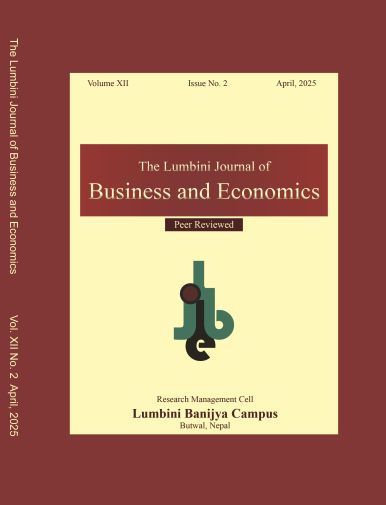Financial Management Practices and Financial Satisfaction among University Faculties in Nepal
DOI:
https://doi.org/10.3126/ljbe.v12i2.77423Keywords:
Financial Management, knowledge, attitude, satisfaction, university facultiesAbstract
Purpose: This study primarily examines the influence of financial management practices on financial satisfaction among the university teachers in context of Nepal. Additionally, it also explores the joint mediating role of financial knowledge and financial attitude in the relationship between financial management practices and financial satisfaction.
Methods: The research employed a cross-sectional, quantitative approach, gathering data through structured questionnaires distributed across various ranks within the university teachers. This study used a research methodology that combines descriptive and causal-relationship research designs. The sample consisted of 369 respondents selected through purposive sampling. The hypothesized relationships of the study were tested using the covariance-based Structural Equation Modeling technique.
Results: The study explored path from money management, Insurance planning, investment planning, saving practice, and debt management are statistically significant and positive impact on financial satisfaction. The study also recorded that the retirement planning not statistically significant with financial satisfaction. In mediating analysis, the study identified that the financial attitude partially mediates the relationship between the insurance planning, investment planning and saving practices with financial satisfaction. Furthermore, financial knowledge also partially mediates the relationship between the investment planning, saving practices and debt management with financial satisfaction.
Conclusion: The study Demonstrated that university teachers are conscious of money management, insurance planning, investment planning, saving practice, and dent management in relation to financial satisfaction, expect for retirement planning. There is also no mediating effect of financial knowledge and attitude between retirement planning and financial satisfaction.




